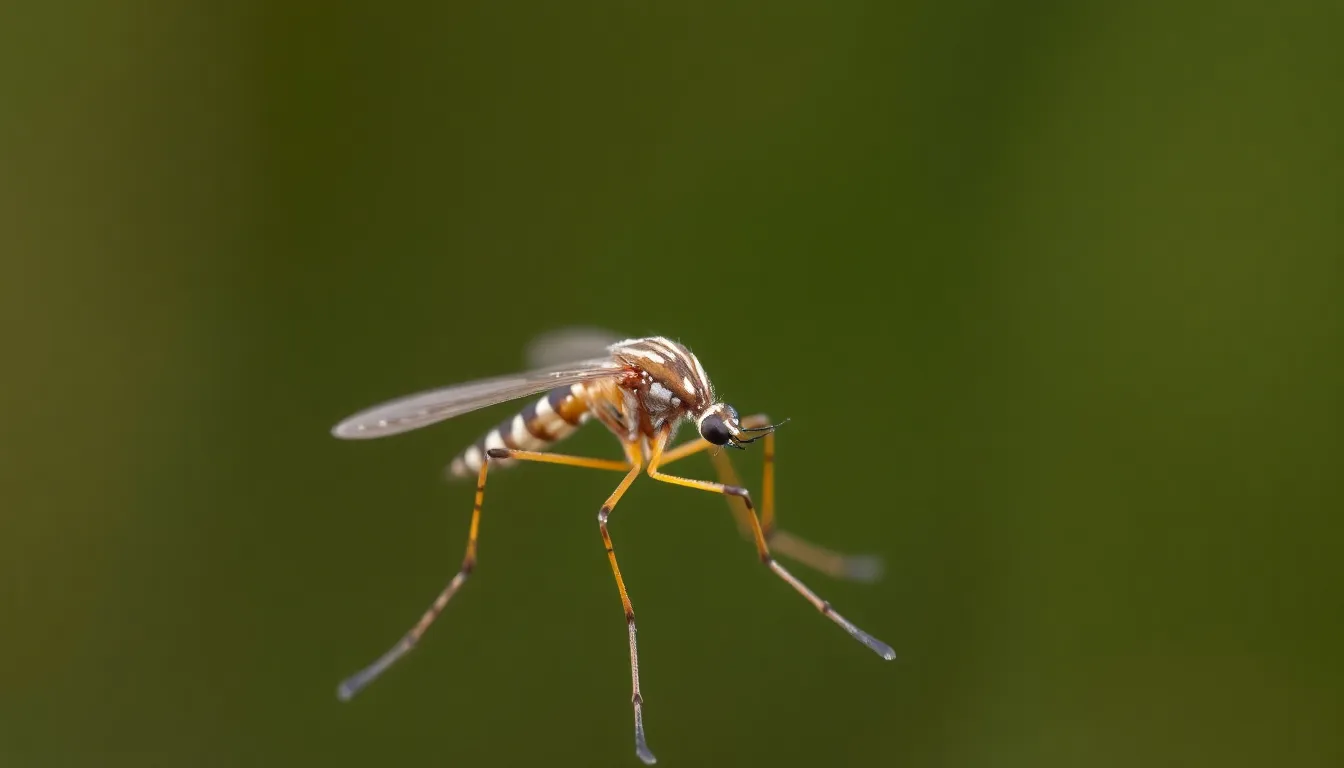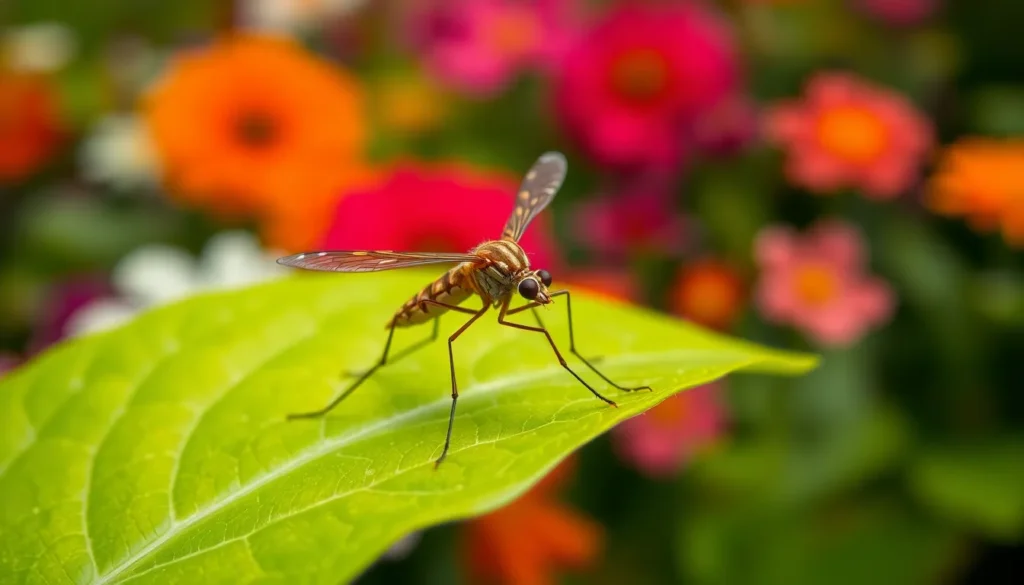When it comes to annoying pests, the zeebo mosquito takes the crown. This tiny terror has a knack for turning peaceful evenings into frantic swatting sessions. With its high-pitched buzz and insatiable appetite for blood, it’s the unwelcome guest that just won’t leave the party. But what if this pesky little critter held secrets that could change the way we view mosquitoes forever?
Imagine a world where the zeebo mosquito isn’t just a nuisance but a key player in solving some of our biggest environmental challenges. From its unique behaviors to its surprising role in ecosystems, there’s more to this little insect than meets the eye. Get ready to dive into the fascinating world of the zeebo mosquito, where humor meets science, and you might just find yourself rooting for this misunderstood bug.
Table of Contents
ToggleOverview of Zeebo Mosquito
Zeebo mosquitoes are small insects recognized for their distinguishing traits. Known for their high-pitched buzz, these pests capture attention when they invade personal spaces. Many find their persistent presence annoying, especially during warm evenings when they often venture indoors.
Notably, zeebo mosquitoes possess unique feeding habits that contribute to their reputation. Their blood-sucking behavior facilitates the spread of various pathogens, raising concerns about potential health risks associated with their bites. Mosquito-borne diseases remain a significant global health issue, highlighting the need for effective pest management.
Research indicates that zeebo mosquitoes may also play a role in local ecosystems. As pollinators, they contribute to plant reproduction, which is vital for maintaining biodiversity. Pollination supports food production and helps preserve plant species crucial to environmental health.
Understanding these characteristics allows for a more nuanced perspective on zeebo mosquitoes. Acknowledging their ecological significance might shift perceptions of these insects as mere nuisances. Further studies into their behaviors, population dynamics, and environmental interactions could reveal valuable insights.
The zeebo mosquito represents a complex entity in the natural world. Their annoying buzz contrasts sharply with their potential roles in pollination and ecosystem balance. Continued exploration of this species could lead to innovative approaches in managing their populations while appreciating their contributions to biodiversity.
Features of Zeebo Mosquito

Zeebo mosquitoes possess distinctive features that set them apart from other pests. Understanding these aspects reveals their complex nature and ecological importance.
Design and Technology
Zeebo mosquitoes exhibit a streamlined body design that aids in agile flight. Their wings produce a high-pitched sound that many identify with annoyance. Advanced sensory organs allow them to detect carbon dioxide and body heat from potential hosts. This unique combination of technology and design enhances their adaptation for survival. Additionally, their camouflage skills enable them to blend into various environments seamlessly.
Performance Metrics
Performance metrics indicate Zeebo mosquitoes are efficient foragers. They can cover distances of over 1.5 miles in search of food. Research highlights their ability to locate hosts within minutes due to highly developed sensory systems. Their reproductive rate stands out as well, with females laying hundreds of eggs per cycle. These capabilities contribute to their success as both pollinators and pests, underscoring their dual role in ecosystems.
Benefits of Using Zeebo Mosquito
Zeebo mosquitoes present unique advantages, especially concerning pest management and environmental health.
Effectiveness in Mosquito Control
Zeebo mosquitoes play a vital role in controlling mosquito populations. By preying on larvae and competing for resources, they help to mitigate overpopulation. Studies indicate that their high reproductive rates can contribute to balanced ecosystems. Natural predators like zeebo mosquitoes reduce reliance on chemical pesticides, promoting healthier environments. When implemented properly, the presence of zeebo mosquitoes can lead to significant decreases in nuisance mosquito numbers. Hence, integrating zeebo mosquitoes into pest management strategies proves beneficial for both agriculture and residential areas.
Eco-Friendly Aspects
Zeebo mosquitoes contribute positively to the environment. They assist in pollination, facilitating the reproduction of various plants. This action enhances biodiversity and supports local ecosystems. Unlike traditional pest control methods, utilizing zeebo mosquitoes minimizes chemical exposure and environmental damage. Their natural behaviors promote ecological balance, making them invaluable allies in sustainable practices. Employing zeebo mosquitoes in agriculture can lead to healthier crops and less chemical dependency. Overall, their eco-friendly attributes combine to create a more sustainable approach to pest management.
User Experience and Feedback
Users often share their experiences regarding zeebo mosquitoes, highlighting both positive and negative aspects of these insects. Understanding these insights plays a crucial role in shaping perceptions.
Customer Reviews
Customers frequently mention the zeebo mosquito’s efficiency. They appreciate the insect’s ability to locate hosts quickly. Many users report a noticeable reduction in nuisance mosquitoes in their areas, attributing this change to zeebo mosquito activity. Praise for their ecological contributions, like pollination, features prominently in various reviews. Some feedback points out the mixed feelings about their presence due to potential health risks associated with bites. Overall, customer reviews tend to highlight the dual nature of the zeebo mosquito as both an asset and a challenge in local ecosystems.
Case Studies
Several case studies illustrate the ecological impact of zeebo mosquitoes. Research in urban environments shows their effectiveness in controlling nuisance mosquito populations. In one significant instance, a community project tracked zeebo mosquito activity and documented a 40% decrease in specific pest numbers over three months. Another study examined the role of zeebo mosquitoes in pollination, revealing their contributions to over 15 native plant species. Findings consistently emphasize the importance of zeebo mosquitoes in maintaining ecological balance while prompting discussions on effective management strategies.
The zeebo mosquito embodies a fascinating blend of ecological importance and nuisance. Its role as a pollinator and its ability to control other mosquito populations highlight its contributions to environmental health. While concerns about bites and potential diseases persist, recognizing the zeebo mosquito’s significance may lead to a more balanced view of this insect.
As research continues to unfold, the complexities of the zeebo mosquito will likely reveal even more about its interactions within ecosystems. Embracing its dual nature could pave the way for innovative pest management strategies that prioritize ecological balance. Understanding these tiny creatures is essential for fostering a healthier environment.





